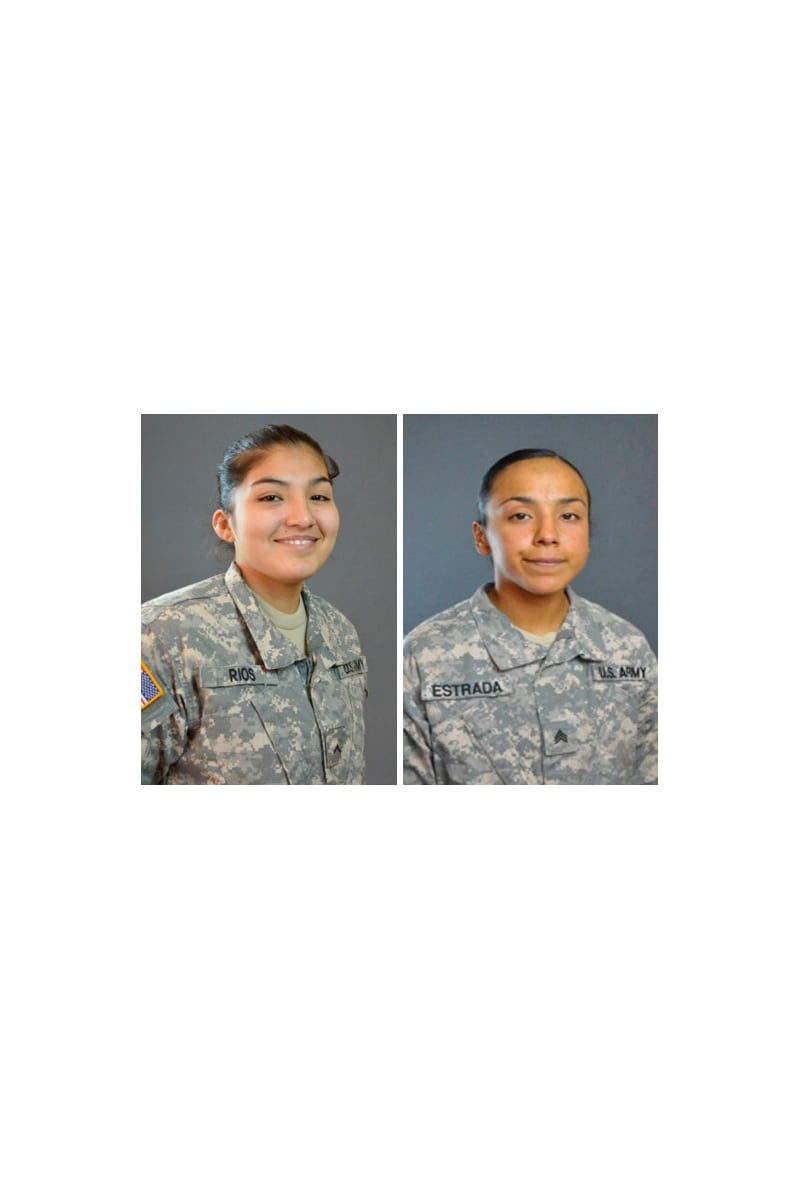The road to the 2016 Summer Olympics for four Army boxers begins Monday in Spokane, Washington.
And while every member of the quartet said the ability to train in Fort Carson, Colorado, as part of the Army's World Class Athlete Program has led to improved skills and sharpened focus, there is some awkward math to contend with: Four Army boxers split into two weight classes means training partners could become rivals.
"You never want to compete against one of your teammates," said Spc. Melissa Parker, who could face fellow Spc. Alex Love in the 112-pound division of the USA Boxing National Championships. "While we're here [at Fort Carson], we're training. Once we get there, when that bell rings, I have no friends, I have no teammates ... I have an opponent."

Spcs. Melissa Parker and Alex Love
Photo Credit: Capt. Nate Garcia/Army
Love, 25, is a two-time USA Boxing national champ in the 106-pound class and boxed in the 2012 U.S. Olympic trials at 112 pounds. Parker, 28, is a former USA Boxing champ at 125 pounds, but dropped down to compete in one of three weight classes that will be contested by women in Rio de Janeiro in 2016.
Both women found the Army after finding boxing: Love, an intelligence analyst, said she'd always wanted to join and feels "very fortunate that my passion for boxing led me to the military" in 2013. Parker, a power-generation equipment repairer, started boxing in 2002, served four years on active duty with the Marines (2006-2010), then determined last year that a return to the structure of military life would allow her to serve while maintaining a stable boxing career.
"I don't have to worry about finances," she said. "I don't have to worry about whether I can make training, or working around it. When I was boxing as a civilian, that was the hardest thing for me."
Unlike her teammates, Sgt. Felisha Estrada Gonzalez donned camo before spending time in the squared circle. The 24-year-old had deployments to Kuwait and Afghanistan under her belt before taking up boxing a little more than three years ago, she said. She's been part of the WCAP for six months and has taken her cues from her more experienced training partners.
"They've been giving me lots of advice, lots of help," she said. "It shows in my sparring sessions ... they've helped me so much since I've got here."
Estrada Gonzalez will box at 132 pounds, as will Pfc. Rianna Rios, a 20-year-old who won the 2014 national Golden Gloves title at 125 pounds. She recalled being drawn to boxing at a young age, accompanying her father to the gym, and remembered the impression she got seeing WCAP boxers arrive at big-time tournaments.
"They were a solid team -- you would see them walk in together and you were like, 'Whoa!' " she said.
WCAP head boxing coach Staff Sgt. Charles Leverette provided the last bit of encouragement with a helping hand at a 2013 tournament, assisting her father in her corner. She's been with WCAP for nearly a year and points to fellow soldiers outside the WCAP as a source of inspiration.
"They always remind me of how blessed and lucky I am to be in this program and do what I do," Rios said. "I think I have a great support system."
A win for Rios or her teammates wouldn't mean a punched ticket to Rio. The champion in Spokane will represent the U.S. in Toronto at this year's Pan American Games, and the top two finishers this month will earn spots in the Olympic team trial, which will feature the nation's top eight female boxers in each Olympic weight class. Even a win there only means a ticket to further qualifying events against the best from other nations for the right to box in Brazil.

Pfc. Rianna Rios and Sgt. Felisha Estrada Gonzalez will both compete in the 132-pound class the USA Boxing National Championships next week, with the winner earning a spot in the Pan Am Games and the top two finishers punching their tickets to the Team USA Olympic qualifier.
Photo Credit: Army
It's a long road, and it could include some intersections: Staff Sgt. Joe Guzman, who will coach the quartet in Spokane, said day-to-day training doesn't change just because soldiers could square off during a tournament, but there are alternate plans in place for the bout itself.
"We don't coach," Guzman said. "I can't work both corners. We have them pick other coaches [at the tournament] that they're cool with. Some of them are retired military."
Guzman didn't play favorites, but said he expected "some fireworks" at the event.
"We're all ambassadors of the Army," he said. "We all wear that Army name across our chests proudly. ... We want to show everyone what our elite athletes are all about."
Kevin Lilley is the features editor of Military Times.




